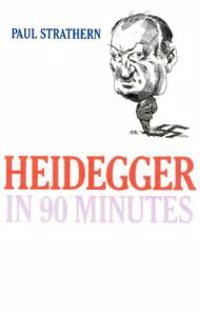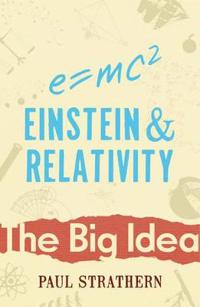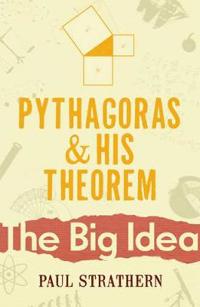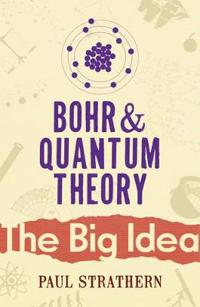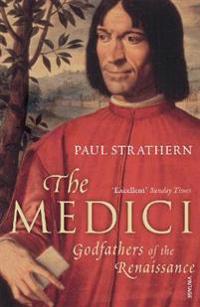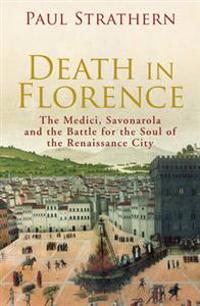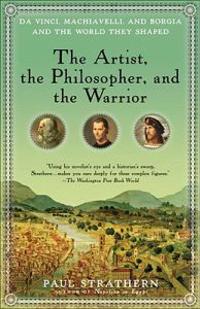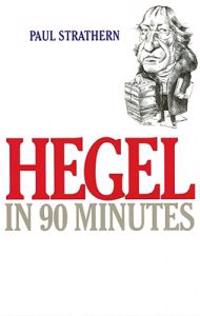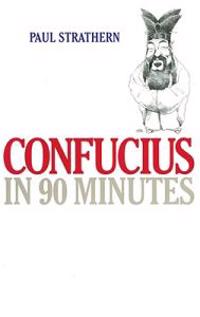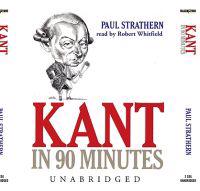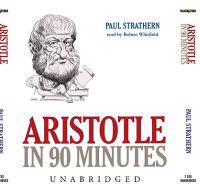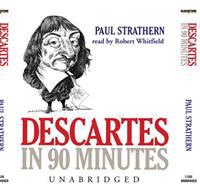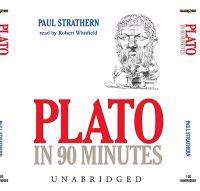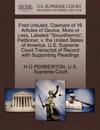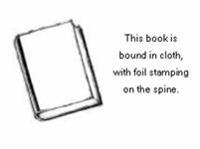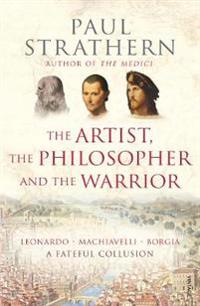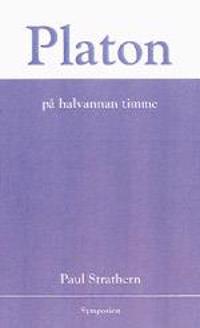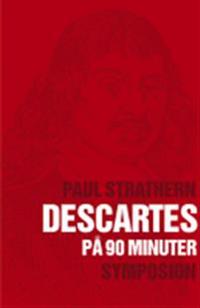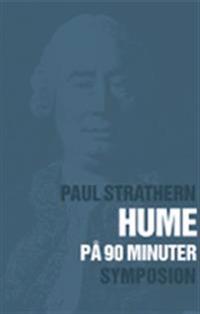Heidegger in 90 Minutes (Häftad)
avPaul Strathern, Strathern Paul
ISBN: 9781566634380 - UTGIVEN: 2002-04Each of these little books is witty and dramatic and creates a sense of time, place, and character....I cannot think of a better way to introduce oneself and one s friends to Western civilization. Katherine A. Powers, Boston Globe. Well-written, clear and informed, they have a breezy wit about them.[...]
The Spirit of Venice (Inbunden)
avStrathern, Paul
ISBN: 9780224089791 - UTGIVEN: 2012-05-03The Republic of Venice was the first great economic and naval power of modern Western world. After winning the struggle for ascendency against its bitter Genoese rivals in the late 13th century, the Republic enjoyed centuries of unprecedented glory and a trading empire. This title defines the charac[...]
Einstein and Relativity (Häftad)
avPaul Strathern
ISBN: 9780099237327 - UTGIVEN: 1997-08Einstein's revolutionary papers on his Theories of Relativity changed mankind's view of the world and universe forever, establishing him as one of our greatest scientific minds - but when he died, he considered himself a failure. This book tells the story of Einstein's early life through to his most[...]
Crick, Watson and DNA (Häftad)
avPaul Strathern
ISBN: 9780099237426 - UTGIVEN: 1997-08The discovery by Francis Crick and James Watson of DNA - the very building blocks of life - has astounding implications for mankind's future. But with this discovery have come important ethical questions. This title offers an examination of these two scientists' lives, radical work and legacy.[...]
Pythagoras and His Theorem (Häftad)
avPaul Strathern
ISBN: 9780099237525 - UTGIVEN: 1997-08Pythagoras was arguably the first 'genius' of Western culture, establishing a blend of high intellect and high lunacy. This book tells the remarkable story of the life of this poorly understood genius and the transformation his work brought about in mathematics.[...]
Bohr and Quantum Theory (Häftad)
avPaul Strathern
ISBN: 9780099238324 - UTGIVEN: 199807Niels Bohr's discoveries in quantum theory led to advances in physics and our understanding of atomic structure. His work won him the Nobel Prize in 1922 and his ideas continue to propel physics towards new discoveries. This title offers an account of the man who was both a part of The Manhattan Pro[...]
Medici (Häftad)
avPaul Strathern
ISBN: 9780099522973 - UTGIVEN: 200710Tells the history of the modest family which rose to become one of the most powerful in Europe. This title explores the intensely dramatic rise and fall of the Medici family in Florence, as well as the Italian Renaissance which they did so much to sponsor and encourage.[...]
Death in Florence (Inbunden)
avPaul Strathern
ISBN: 9780224089784 - UTGIVEN: 201105By the end of the fifteenth century, Florence was well established as the home of the Renaissance. As generous patrons to the likes of Botticelli and Michelangelo, the ruling Medici embodied the progressive humanist spirit of the age, and in Lorenzo the Magnificent they possessed a diplomat capable [...]
The Artist, the Philosopher, and the Warrior: Da Vinci, Machiavelli, and Borgia and the World They Shaped (Häftad)
avPaul Strathern
ISBN: 9780553386141 - UTGIVEN: 2011-02Confucius in 90 Minutes (CD-bok)
avPaul Strathern
ISBN: 9780786159468 - UTGIVEN: 2006-11Confucius taught a moral wisdom that would become a predominant social force in China from the second century BCE until the mid-twentieth century. It would appear that his aim was to turn his pupils into good government officials, but his quaint humanistic platitudes, maxims, and quasi-enigmatic ane[...]
Kant in 90 Minutes (CD-bok)
avPaul Strathern
ISBN: 9780786190904 - UTGIVEN: 2003-10Immanuel Kant taught and wrote prolifically about physical geography yet never traveled further than forty miles from his home in Konigsberg. How appropriate it is then that in his philosophy he should deny that all knowledge was derived from experience. Kant's aim was to restore metaphysics. He ins[...]
Aristotle in 90 Minutes (CD-bok)
avPaul Strathern
ISBN: 9780786190911 - UTGIVEN: 2003-11Aristotle wrote on everything from the shape of seashells to sterility, from speculations on the nature of the soul to meteorology, poetry, art, and even the interpretation of dreams. Apart from mathematics, he transformed every field of knowledge that he touched. Above all, Aristotle is credited wi[...]
Descartes in 90 Minutes (CD-bok)
avPaul Strathern
ISBN: 9780786192298 - UTGIVEN: 2003-10Rene Descartes spent much of his life in solitude. Fortunately, these countless lonely hours helped Descartes produce the declaration that changed all philosophy: "I think, therefore I am." Convincing himself to doubt and disregard sensory knowledge, Descartes found he could prove his existence thro[...]
Plato in 90 Minutes (CD-bok)
avPaul Strathern
ISBN: 9780786192793 - UTGIVEN: 2003-04In an age when philosophers had scarcely glimpsed the horizons of the mind, a boy named Aristocles decided to forgo his ambitions as a wrestler. Adopting the nickname Plato, he embarked instead on a life in philosophy. In 387 BC he founded the Academy, the world s first university, and taught his st[...]
Nietzsche in 90 Minutes (Häftad)
avPaul Strathern
ISBN: 9781566631211 - UTGIVEN: 1996-09Each of these little books is witty and dramatic and creates a sense of time, place, and character....I cannot think of a better way to introduce oneself and one s friends to Western civilization. Katherine A. Powers, Boston Globe. Well-written, clear and informed, they have a breezy wit about them.[...]
Kant in 90 Minutes (Häftad)
avPaul Strathern
ISBN: 9781566631235 - UTGIVEN: 1996-04Offers a brief profile of the German philosopher, discusses his major works, and assesses his influence on modern philosophy[...]
Wittgenstein in 90 Minutes (Häftad)
avPaul Strathern
ISBN: 9781566631310 - UTGIVEN: 1996-09Each of these little books is witty and dramatic and creates a sense of time, place, and character....I cannot think of a better way to introduce oneself and one s friends to Western civilization. Katherine A. Powers, Boston Globe. Well-written, clear and informed, they have a breezy wit about them.[...]
Hegel in 90 Minutes (Häftad)
avPaul Strathern
ISBN: 9781566631549 - UTGIVEN: 1997-04Offers a brief profile of the German philosopher, discusses his dialectical method, and assesses the influence of his theories[...]
James Joyce in 90 Minutes (Inbunden)
avPaul Strathern
ISBN: 9781566636490 - UTGIVEN: 2005-09Building on his enormously successful series of
Artist, The Philosopher and The Warrior (Häftad)
avPaul Strathern
ISBN: 9781845951214 - UTGIVEN: 2010-02In the autumn of 1502 three giants of the Renaissance period - Cesare Borgia, Leonardo da Vinci and Niccolo Machiavelli - set out on one of the treacherous military campaigns of the period. This work focuses on this collusion of three iconic figures of the Italian Renaissance to unite three mighty s[...]
Platon (428-348 f. Kr.) på nittio minuter (Häftad)
avPaul Strathern
ISBN: 9789171395290 - UTGIVEN: 200108Descartes (1596-1650) på nittio minuter (Häftad)
avPaul Strathern
ISBN: 9789171396204 - UTGIVEN: 200406

